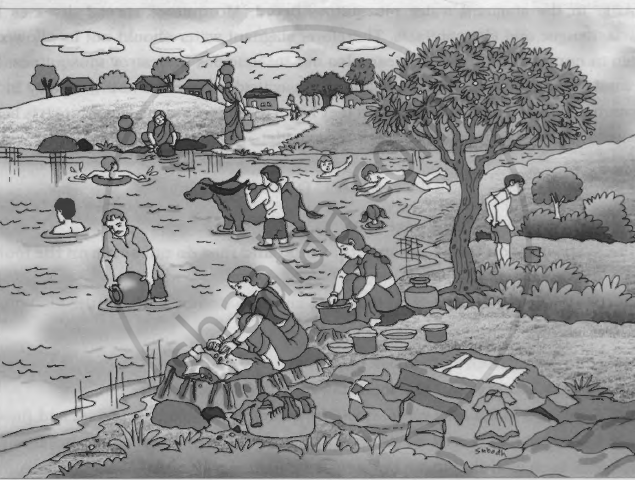Advertisements
Advertisements
प्रश्न
How does vaccination prevent diseases?
उत्तर
A vaccine contains a killed or weakened disease causing microbe that is responsible for infection. Because the germ is killed, it cannot make the person sick. When a person receives a vaccine, the body reacts by producing antibodies in defence. The antibodies remain in the blood for long and destroys the germs of a particular disease. In other words, vaccines expose people safely to germs so that they can fight with the same germs in future against its specific disease.
APPEARS IN
संबंधित प्रश्न
Put a tick mark (✓) against the correct alternative in the following statement:
Infectious diseases can be prevented by:
Name three commonly used vaccines.
Why should you not allow water to stagnate near your house?
When your friends fall while playing and get hurt, does anyone tell you, ‘Don’t go near them, you will also get hurt’?
Suppose your mother has a headache. Do you also get a headache if you go near her ?

What different activities are going on in the above picture?
Why should you not go to school if you have conjunctivitis?
Classify the diseases given below as diseases that spread through food, through water, and through air.
Malaria, typhoid, cholera, tuberculosis, jaundice, gastro, diarrhoea, diphtheria.
Give reasons.
When there is an epidemic of cholera, we should drink boiled water.
How the diseases are transmitted from one person to the other person?
